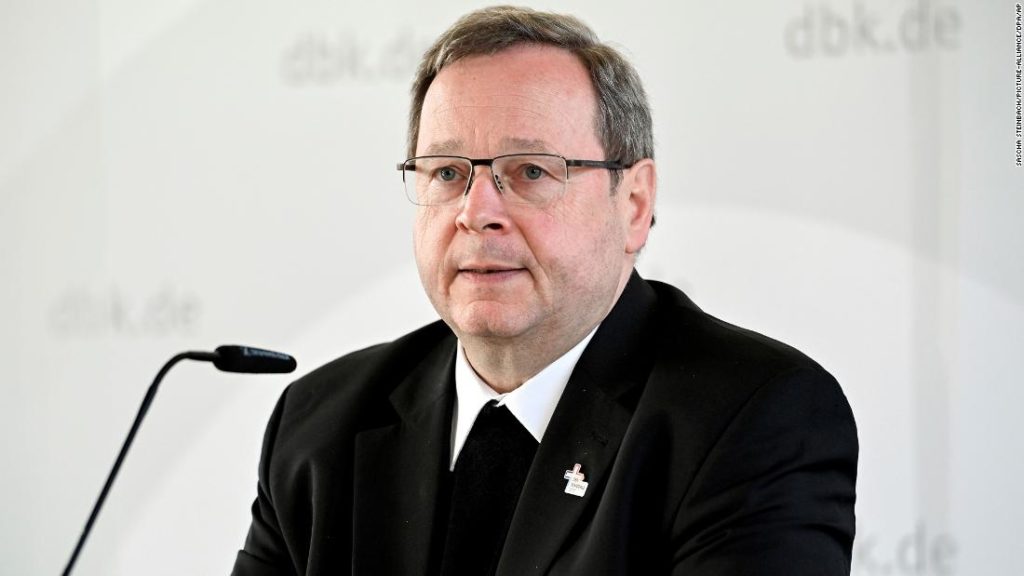“We decisively distance ourselves from this position,” it said.
The statement, signed by 266 theologians, said the ruling lacks “theological depth, hermeneutical understanding as well as argumentative stringency.”
While some of their number support the Vatican position, other prominent Catholic clergy in Germany have spoken out against the ruling, which was approved by Pope Francis and published March 15.
“We need a re-evaluation of same-sex partnerships and a further development of the church’s sexual morality.”
Bätzing’s diocese also updated its Facebook profile photo to an image of Limburg Cathedral surrounded by a rainbow, a symbol of the LGBT community, and the phrase “#LoveIsNoSin.”
Bätzing is the head of the German Bishops’ Conference, the Catholic church’s ruling body in Germany.
The conference declined to comment when contacted by CNN.
Christoph Lentz, rector of the Pallottine community in Friedberg, Bavaria, also criticized the Vatican ruling, saying it was “unspeakable, intolerable and incomprehensible to people.”
Since Friday afternoon the community has flown a rainbow flag with a phrase from Genesis 12:2 that reads: “You shall be a blessing.”
The Vatican ruling is a setback for Catholics who had hoped the institution would modernize its approach to homosexuality.
Dozens of countries, include many in western Europe, have legalized same-sex marriages, and the church’s reluctance to embrace LGBTQ people has long held the potential to alienate it from younger followers.
While Pope Francis has frequently been praised for his welcoming tone toward LGBTQ people both within and outside the church, he approved the March 15 statement.
“The blessing of homosexual unions cannot be considered licit,” wrote the Vatican’s top doctrinal office, the Congregation for the Doctrine of the Faith.
“It is not licit to impart a blessing on relationships or partnerships, even stable, that involve sexual activity outside of marriage, as is the case of the unions between persons of the same sex,” the statement reads.
Blessing same-sex unions, the Vatican says, would send a sign that the Catholic Church approves and encourages “a choice and a way of life that cannot be recognized as objectively ordered to the revealed plans of God.”
The statement says that “God Himself never ceases to bless each of His pilgrim children in this world…but he does not and cannot bless sin.”
Among the German Catholic clergy that support the Vatican’s position are the bishops of Regensburg, Passau, Görlitz and Eichstätt, KNA, the German Bishops Conference news agency, reports.
Same-sex unions are the latest issue on which the German Catholic church has clashed with the Vatican in recent years.
In 2019, it revealed plans for a two-year process of reckoning and reform, to rebuild public trust in the wake of a shocking report into child sexual abuse in the church.
These plans, which included debating priestly celibacy and whether to allow women to play bigger roles in ecclesiastical life, attracted criticism from the Vatican.
CNN’s Rob Picheta and Delia Gallagher contributed to this report.
You may also like
-
Afghanistan: Civilian casualties hit record high amid US withdrawal, UN says
-
How Taiwan is trying to defend against a cyber ‘World War III’
-
Pandemic travel news this week: Quarantine escapes and airplane disguises
-
Why would anyone trust Brexit Britain again?
-
Black fungus: A second crisis is killing survivors of India’s worst Covid wave

